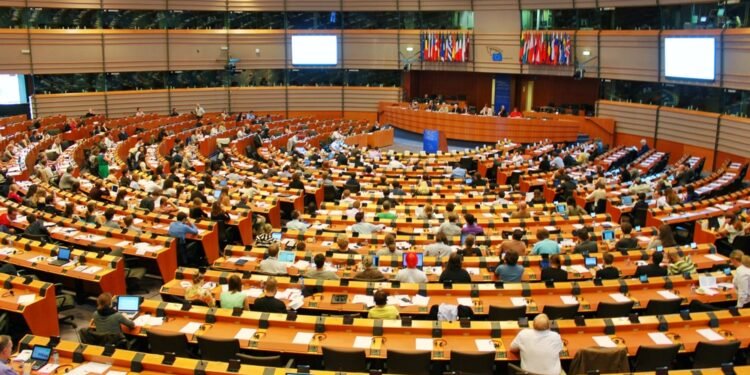Brussels, (Brussels Morning)- According to the opposition parties, the budget agreement of the Brussels government offers too few answers for the working middle class to cope with the inflation and energy crisis.
“The working middle class, which is already suffering in this energy crisis today, is once again the loser,” says Brussels MP Cieltje Van Achter (N-VA).
“The fact that purple-green pushes more expensive service vouchers forward is a slap in the face for the taxpayer and the entire service voucher sector,” she says. With this, Van Achter winks at the departure of Clerfayt from the negotiation talks last week, the moment when there seemed to be a hitch in the budget cable.
According to BRUZZ, the N-VA politician also points to a study by the University of Namur, which stated that Brussels debts would rise to almost 13 billion next year.
“Today, Gatz is talking about a deficit of 400 million euros in 2023, but we are not getting any information about the hundreds of millions that he keeps outside the budget target. All debts will have to be repaid.”
Renolution
PVDA also believes that the Brussels government is not sufficiently responding to the challenges of the crisis.
“Like the federal government, the Brussels government completely ignores the energy and purchasing power crisis and ignores the majority of employees and self-employed,” says Françoise De Smedt.
“The Vervoort government continues as if nothing had happened, nothing is being questioned. On the day that an article in Le Soir shows that the Renolution’s insulation premium system is not working, Alain Maron proudly announces that he An additional 18 million euros will be invested.”
“However, it is clear that this support is mainly going to the wealthy households who need it least, as it is insufficient for the small owners and tenants living in energy-hungry buildings.”
Balanced budget
The budget for 2023 is structurally in the red for 400 million euros, but Brussels Finance Minister Sven Gatz (Open Vld) believes in a balanced budget in 2024. According to CD&V, that is a vain hope.
“The promised budgetary balance for 2024-2025 may gradually be put away, given the limited savings,” says Bianca Debaets. The French-speaking liberals also do not believe in a balanced budget in 2024.
Alexia Bertrand (MR): “I am surprised that the government dares to tell us this, it is absolutely impossible and certainly with the steps taken today.”
Distribution Taxes
Furthermore, the Brussels Christian Democrats also find the measures to tackle the increased energy costs insufficient.
“I think the worst thing is that the Brussels government actually forgets the vast majority of Brussels residents, the middle-income households who are also confronted with sky-high energy bills. An example could have been set there, for example by lowering distribution taxes,” says Debaets. .
The same sound is heard at Les Engagés, for which the 200 million euros to tackle the energy crisis is not enough.
“We are faced with a lack of realism. It is the inhabitants of Brussels who will foot the bill thanks to an increase in debt,” says Christophe De Beukelaer.
‘Money conduit’
Vlaams Belang responds that the Brussels government “barely succeeds in hiding internal tensions and buys time with money it does not have”.
“Gatz had intended to appease the credit institutions with a saving of 150 million. He seems to have succeeded in this, but then there is immediately a huge additional expenditure of at least 200 million,” says Dominiek Lootens-Stael. “The Capital Region is a conduit for money it doesn’t have. People spend about 25 percent more than there is income.”
Nevertheless, Vlaams Belang also has positive words for the Brussels government, and in particular for Minister of Work Bernard Clerfayt (DéFI).
“He hit the nail on the head by stating that the deplorable activity rate of the Brussels population and the lack of language skills of the unemployed in Brussels is the major challenge.”




